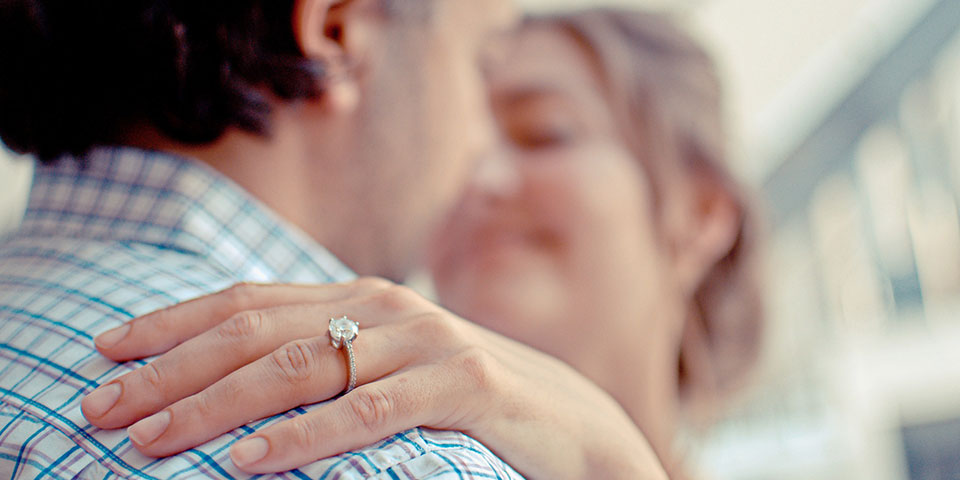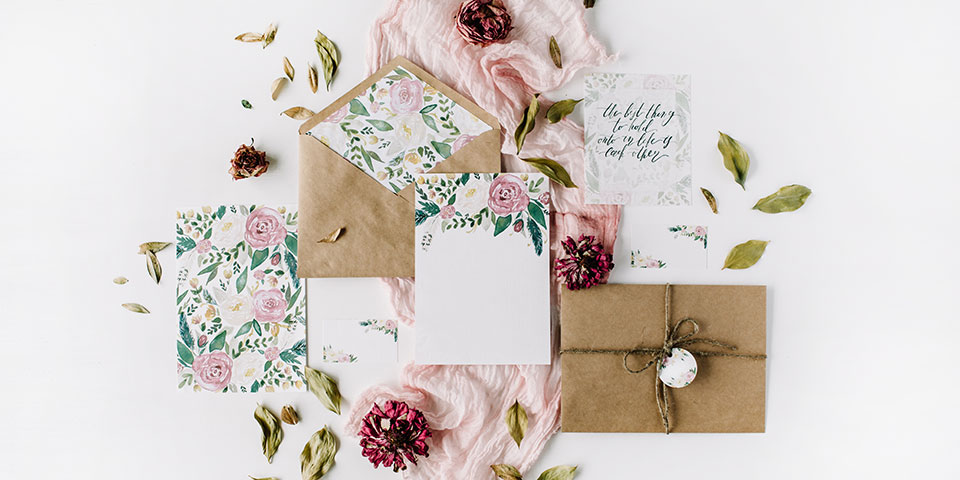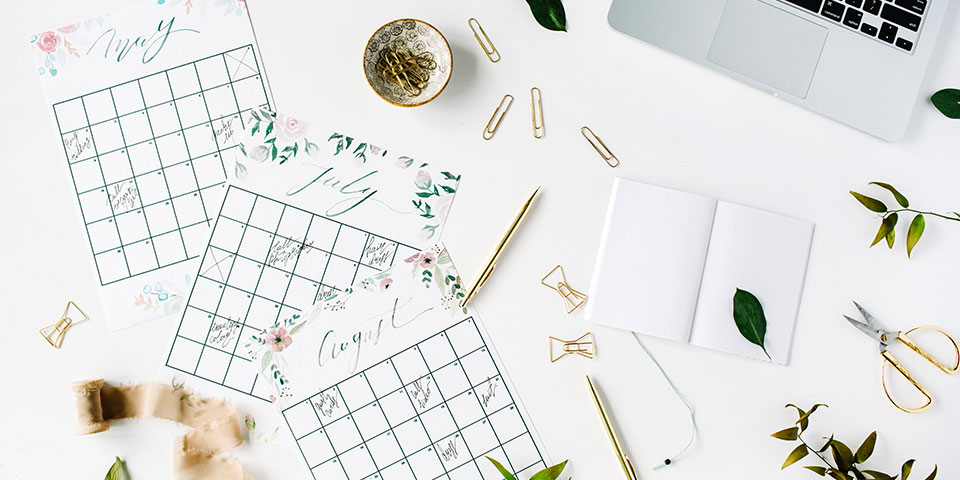Are you getting married but have no idea where to start? Don’t worry! Most brides feel a bit overwhelmed when they think about planning their wedding day.
It’s a part of the process. But there are a few things worth considering before you even start planning!
With a bit of forward-thinking, you’ll be able to plan your dream day without breaking a sweat! Once you have a date and a budget set, you can start booking and buying the things you need.
To ensure you book each of your vendors in the most cohesive way possible, here’s a great order to start with when deciding on your day:
#1 The Venue
Once you have a date set (or before, if you’re dead set on a particular venue) you need to book your venue. During the busiest time of the year for weddings – weekends in June through October for North America, September through May for Australia – all wedding venues are in high demand. So, to cut down on potential heartache and panic, book your venue as soon as you have a date in mind.
Booking your venue will mean you know exactly where and when you need your guests, caterers, photographers, videographers, and performers to be at your event. Also, keep in mind that vendors won’t be able to sign on to work at your wedding until you know your date, which is often dictated by venue availability.
#2 The Celebrant
Depending on where you choose to get married, you might not need to book a celebrant separately, but if you do, this is the time to do it.
You might want to meet with your celebrant before booking them to ensure their ceremonies fit with your ideal one. Allow some time for schedules, and for meeting a few times during your engagement.
If you need unity candles, ribbons, or anything else that’ll be used during your ceremony, your celebrant will let you know.
You can factor those into your costs at this stage, and you can ask your venue if you’re allowed to have things like flowers down your aisle or open flames.
Once you have your celebrant booked, it’s time to move onto some of the more ‘fun’ elements of wedding planning.
#3 The Entertainment
A wedding party isn’t a party without entertainment! Whatever type of music you want, a good wedding band will be able to deliver the right mood for your day.
According to Adam Michaels, founder of the Around Town Entertainment wedding band company, wedding bands are “often in high demand, and every band is a bit unique. Meeting with your entertainment company and ensuring it’s a good match is incredibly important from the get-go. Booking your entertainment early helps you solidify the feel of your reception early on.”
No matter where your wedding is taking place, you should begin exploring your wedding entertainment once you have the date, venue and celebrant picked.
Live music is often more memorable than a DJ, as it’s a bit more personal and people will remember the energy of the dance floor. It’s also a big purchase, which is why you should allocate for it in your budget early-on.
#4 The Photographer/Videographer
Yes, everyone has a smartphone, and most of us have an uncle or cousin who claims they’re a photographer… but your wedding is arguably one of the most memorable days of your life. The photos and videos should be worth looking back on over and over again in years to come.
Keep in mind that, while it might be nice to have your family member or close friend taking your photos if they have photography talent, this also means they don’t get to enjoy your day as a guest. A wedding photographer (or videographer) is a professional who knows exactly what shots to get, where to be, and when.
There’s a lot to be said for paying someone to spend the day documenting your wedding from start to finish. The end result will be the best of the best and edited to highlight the most important moments of the day.
Just like anything and anyone else, photographers and videographers get booked up quickly, so start narrowing down what style of photos or videos you like and asking for quotes at this stage.
#5 The Dress
You might think picking a wedding dress won’t take long, but it’s actually better to start shopping sooner rather than later! If you’re lucky enough to find ‘the dress’ on your first trip – we’re jealous! However, this often isn’t the case for most brides-to-be, meaning you may have to shop more than once.
Many boutiques require bookings for fittings and, as expected, evening and weekend bookings are always the first to fill up. Try to book appointments as soon as you can, to allow for multiple trips to different stores.
If you are planning to order your gown – which is common in most bridal shops – it can take anywhere from 4 to 9 months for your dress to arrive, depending on designer and time of year. Another thing to factor in is the wait time for alterations, which can take an additional couple of months.
Your dress also brings the style and feel of your wedding to life, meaning the sooner you solidify your attire, the better. You’ll have to select bridesmaid dresses, suits or tuxes, and accessories, which should be centered around the dress that fits with the theme and feel of your day.
Be sure to nail down your venue first, though, as you may not want to select a giant ballgown if you end up planning a beach wedding!
#6 Hair Stylist & Make-Up Artist
If you want your hair and make-up done on the day, as soon as you select your dress and have a vision for your “look,” it’s time to start asking for quotes. Some venues might have their own hair stylists and make-up artists available as part of a wedding package, but most will not.
Just like with any other vendor, if there’s one company or artist you’d like to go with, you’ll want to ensure they’re available for your date as soon as possible.
When you have the logistics settled: time, date, and the number of people receiving a professional beauty service that day, it’s time to book your beauty package.
Make sure you really iron out the details and get a cost that includes travel, a hair and makeup trial run, and any other add-ons you might want, like airbrush foundation or fake eyelashes. It’s better to have an all-inclusive price so that you’re not surprised on the day.
#7 Catering
No matter where you’re getting married, you’ll have to deal with caterers. If you’re getting married in a venue with its own kitchen and staff, then great! That means you don’t have to outsource it, but if you do, now’s the time to get that narrowed down.
Your guest-list might fluctuate a little bit, but presumably, you’ll have some wiggle room for the catering. You should also remember to include your photographer, wedding planner, and entertainment into the final figure for the caterers!
#8 Decorations and Flowers
Decorating your venue will generally be a joint effort between you and your venue manager/coordinator. However, if you have a color scheme, theme or any special decorations or trinkets, it’s worth stockpiling them now.
Most venues will give you a lot of input into what you can do with their space, but some are more “bare-bones” and you’ll have to bring in a lot more of your own touches. It can get expensive to purchase multiple decorations closer to the day of, so start compiling decor as soon as you can.
Flower arrangements are also generally a common item to include in your wedding, so once you have your colors picked, it’s time to pick your flowers!
The bride and bridesmaids will more than likely each carry bouquets of some kind and you’ll likely have floral centerpieces arranged on your tables at your reception.
Check with your florist as to when your flowers will be ready for collection/delivery, as wedding florists can be in high demand, too, often delivering to more than one wedding on a weekend.
#9 The Invitations
Although they might seem like an old-fashioned concept, paper invitations are a great souvenir for your guests. They’re also still hugely popular and you can have a lot of fun creating them!
Designing and printing invitations can take time, so that’s something to consider, along with the time it takes for them to be delivered by mail. But once you have your day, time and venue planned, there’s no reason to wait on sending out Save the Dates – and eventually, invitations.
Don’t forget to include your RSVP deadline, so that you can tell the caterers a definitive count on how many guests you’ll have. As a general rule of thumb, Save The Dates should go out 8-12 months in advance, especially if you have out of town guests. Invitations should be sent out 2-3 months prior to your day, if possible.
#10 Honeymoon
Once you have your wedding day planned, it’s time to book your honeymoon!
You might want to leave the day after your wedding, a few days or a few weeks after. This is entirely up to you, but if you book your honeymoon prior to the wedding, it’s out of the way and you have an exciting, relaxing trip to look forward to with your future spouse!
Planning is tiring, and you’ll be exhausted after the preparation you did for your big day, so you deserve a break!
Of course, you don’t need to book your honeymoon now – but why not?! There’s nothing stopping you, so spend a little wedding planning time putting together your dream vacation once items 1-9 are taken care of. Book it while you’re still in planning mode, as it’ll be another item ticked off the to-do list!
This list is by no means the only way you should book your wedding, but this order is certainly one that works well. The main thing is to plan before you book or pay for anything because if you don’t know what you want, you’ll only waste time, energy, and money.






